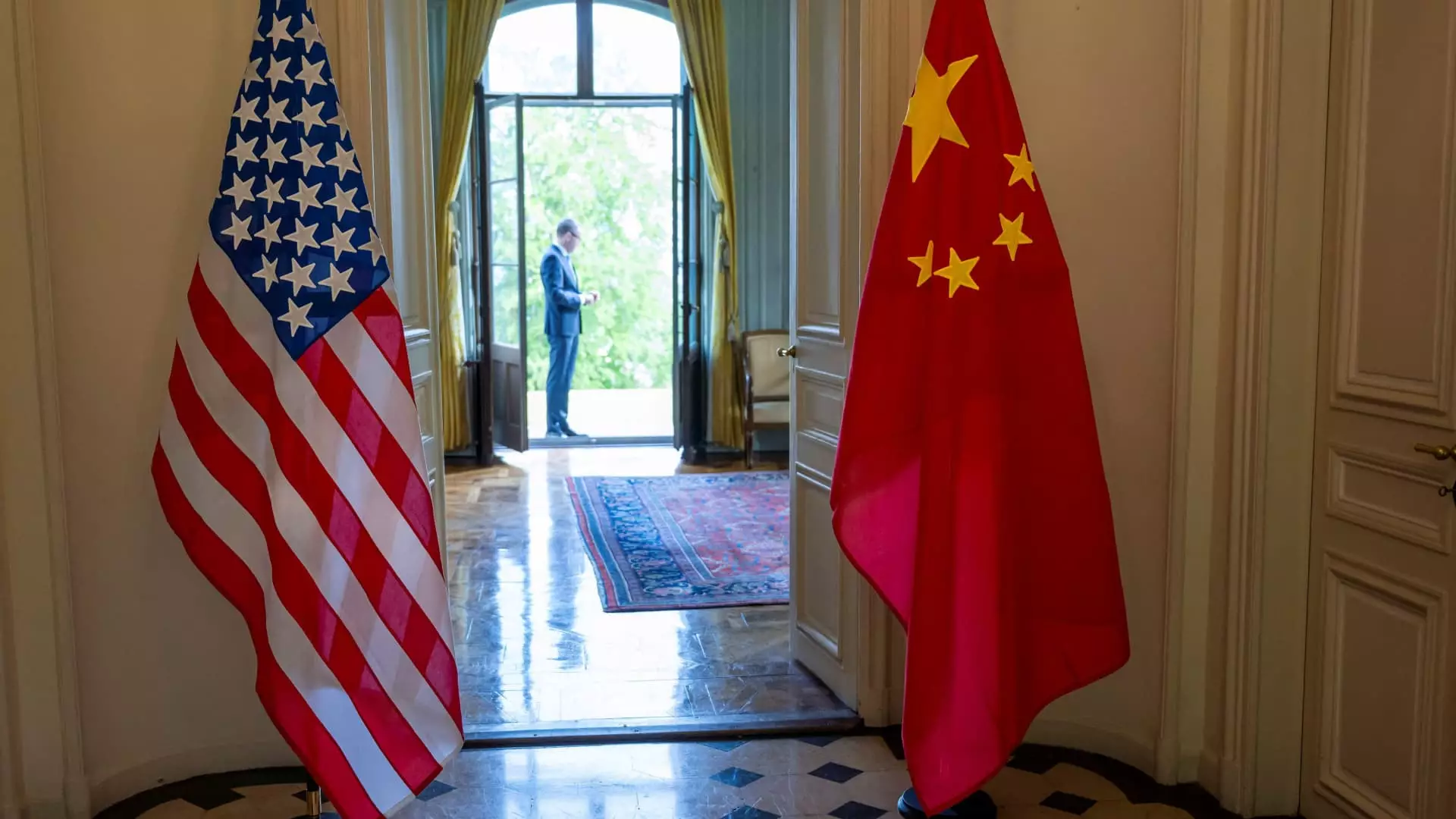As trade relations between the U.S. and China stagnate, the implications stretch far beyond goods and tariffs. The recent remarks by U.S. Treasury Secretary Scott Bessent reflect a challenging reality—efforts to resolve the ongoing trade war are faltering. Despite initial breakthroughs in negotiations, the bilateral dialogue is now characterized by a silence that’s becoming deafening. Bessent’s acknowledgment that both countries require direct communication exposes a crucial insight: without immediate intervention from the leaders of these two superpowers, we may well be inching towards a more significant economic tangle.
The recent escalation in trade setbacks marks a troubling development. This isn’t just a consequence of economic friction—it’s a symptom of a failing diplomatic methodology that often relies on back-and-forth tactical games rather than genuine cooperative diplomacy. It begs the question: are the stakes high enough to warrant a pragmatic exchange of ideas?
The Role of Leadership in Negotiations
Requiring both leaders to engage directly is not merely a bureaucratic suggestion; it’s an acknowledgment of the reality that complex global issues necessitate political will from the top. Trump and Xi Jinping have not spoken since before the U.S. president’s new term, creating a vacuum during which negative sentiments can flourish. The apparent reluctance on China’s part to resume negotiations unless assured that there won’t be surprises from Washington only highlights the delicate nature of this entangled relationship.
The notion of a good relationship between Trump and Xi often touted, becomes dubious when we observe the isolationist tendencies that Trump’s administration has embraced. Diplomatic bridges are being eroded by unilateral actions, such as tech restrictions and visa revocations targeting Chinese students, which serve to entrench a climate of distrust. Such tactics could yield a mere illusion of security at the expense of mutual understanding.
This closely woven fabric of cooperation and competition faces the risk of unraveling entirely, exposing underlying tensions that require leadership to mitigate. The stakes are too high, and for both nations to have sound economic and geopolitical futures, they must seek genuine collaborative dialogue.
Impact of Technological Restrictions
The U.S. has evidently decided to maintain a hawkish stance on technology, dismissing China’s cautionary appeals to reverse its export controls. By proceeding with restrictions, Washington risks alienating a crucial trade partner, emphasizing the paradox of ‘securing’ one’s position while simultaneously destabilizing relationships that promote shared interests.
It is vital to recognize that China’s call for the U.S. to correct its “wrong practices” stems from a necessity to reinstate a level of predictability and reliability in trade relations. The Chinese response to the U.S.’s escalating tech measures underscores a fundamental misunderstanding of interconnectedness in global economies—a misunderstanding that can lead to dire economic consequences.
The refusal of China to yield its rare earth export restrictions accentuates this landscape of shuffling supply chains amidst a fog of miscommunication. Stakeholders in both nations must understand that economic sovereignty does not equate to isolation. The rapidly changing tech landscape necessitates alliances rather than barriers.
The Student Visa Controversy
Adding fuel to an already raging fire, the U.S. government’s recent decision to revoke student visas for Chinese scholars encapsulates a growing trend of punitive measures that further alienate potential allies. It is a sheer oversimplification to view these visa revocations as an isolated policy decision; they are indicative of a broader narrative that casts China as a threat rather than a partner.
China’s Foreign Ministry’s staunch reaction, branding these actions as “unjustified,” resonates with growing sentiments among students and academics. The drastic measures risk fostering a generation of resentment, purely based on flawed geopolitical assumptions. Ignoring the contributions of these individuals, who possess the potential to bridge cultural and intellectual divides, drives a deeper wedge between both nations.
The potential economic dispensation that could arise from a robust student exchange program is lost in a cycle of negativity, ultimately jeopardizing not just diplomatic relations but the future economic landscape.
In today’s intricate global economy, the U.S. and China cannot afford to operate with a combative mindset. This will not only bring about unforeseen retaliation but will also undermine the essence of global trade, which thrives on cooperation. The path to recovery in trade relations demands courage to dismantle barriers and courage to embrace dialogue anew.

